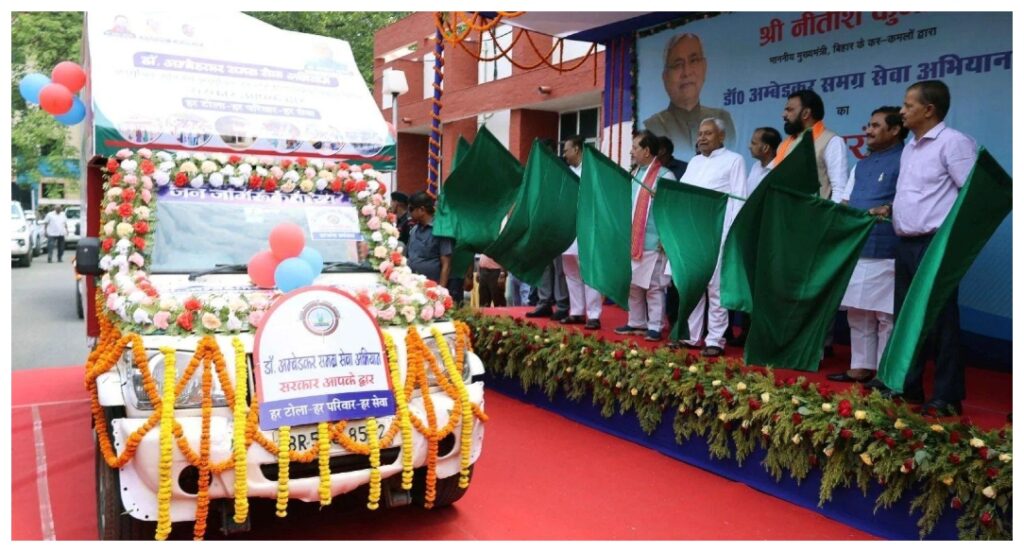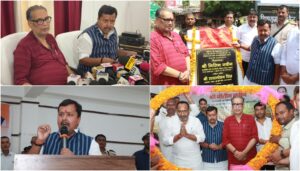
Archive Image
Patna: The Bihar government has reported receiving nearly 23 lakh applications under the Dr Ambedkar Samagra Seva Abhiyan, a month-long welfare drive launched on Chief Minister Nitish Kumar’s orders to coincide with the birth anniversary of Dr Bhimrao Ambedkar.
Held between April 14 and May 17, the initiative saw special development camps organised across more than 60,000 Scheduled Caste and Scheduled Tribe hamlets in the state. Applications were invited for 22 major government schemes, with a focus on welfare benefits and infrastructure development.
A total of 22,99,405 applications were received, of which 9,477 were related to infrastructure and the rest concerned scheme implementation. Government officials have already settled over one-third of the infrastructure-related requests and nearly 43% of welfare scheme applications, according to state data.
As part of the drive, 3,114 infrastructure projects have been completed, and 9,92,203 applications under various welfare schemes have been approved so far.
Focus on schools and Anganwadis
School infrastructure featured prominently in the campaign, with 207 applications received for new school buildings. While work has been completed on 45 of these, construction is under way at 151 sites. Muzaffarpur district accounted for the highest number of school construction requests, followed by Nawada and Siwan.
Similarly, 632 applications were received for Anganwadi centres, which provide early childhood care and nutrition. Construction has been completed at 172 sites, with 437 projects in progress. Muzaffarpur again topped the list, followed by Nawada and Siwan.
Other districts including Gaya, Bhojpur, East Champaran, Madhubani and Patna also reported significant infrastructure requests, reflecting a broad-based push to improve basic services in marginalised areas.
Officials say the data reflect the government’s priority to extend development benefits to socially and economically disadvantaged groups, particularly Mahadalit communities. The focus on educational and nutritional infrastructure is seen as key to long-term social upliftment.
The government has pledged to continue the rapid implementation of pending applications and monitor progress across departments to ensure timely delivery of services.





